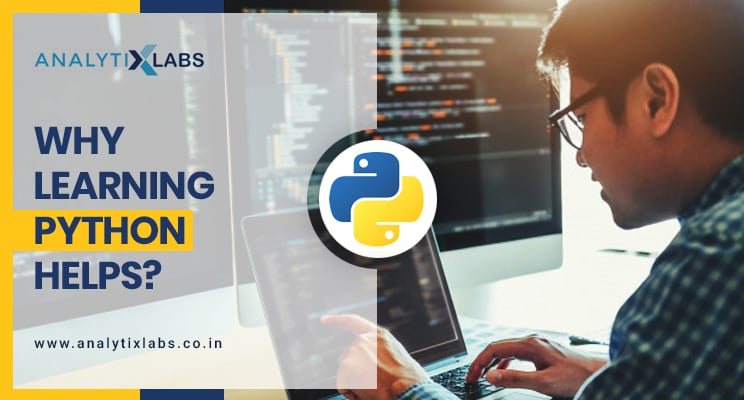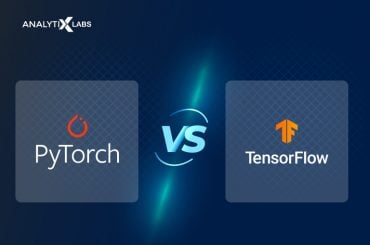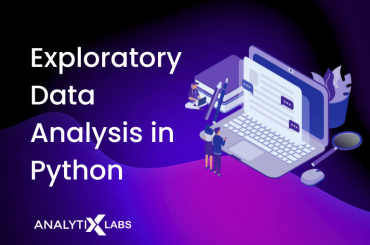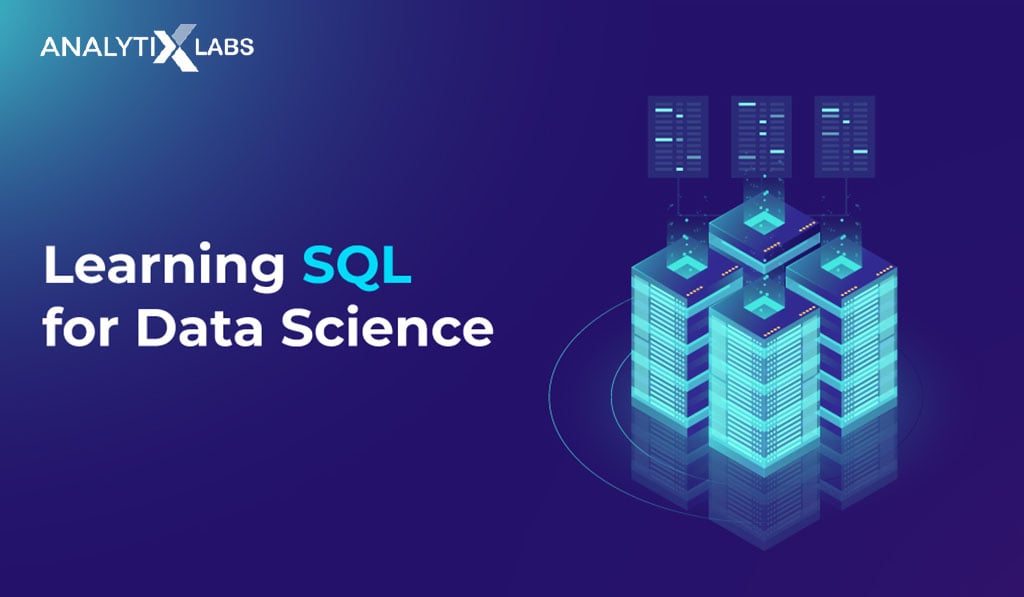
Are you looking for a secure future, and walk home with million dollars in your salary account in the next 5 years? Know these advantages of learning Python Programming today, and you will.
No, we are not shooting for the stars to achieve this target. Most IT professionals earn millions after spending years in their respective domains. But things have changed in the industry. Today, it’s a far more lucrative and challenging domain than it was 5 years ago.
What Is Python?
Python is an interpreted, high-level, general-purpose programming language frequently used for applications such as web development, data analysis, scientific computing, automation, and other things. It was initially made available in 1991 and was designed by Guido van Rossum.
Python emphasizes code readability and a simple, compact syntax that lowers the cost of program maintenance. It contains a vast standard library that offers a wide range of built-in functions and modules for different tasks. It supports several programming paradigms, including object-oriented, procedural, and functional programming, and supports multiple programming paradigms.
Advantages Of Learning Python
One of the well-considered Python language advantages is its usage to get a big-buck job in India and the US. Ask any data engineer, and he/she will most likely say that Python is powering the data industry. The advantages of learning Python are uncountable in the world of Data Science. According to an independent data survey company, Python is the number one skill in the IT and DevOps industry for Big Data Analytics, Visualization, and AI ML companies. Every year, 150,000 Python engineers’ jobs are featured on the leading job boards across the world, including on Glassdoor, Indeed.com, and LinkedIn. Of these, only 27% are filled with exceptional talent, and 10% retain their job for the next 18 months.
That means only 7% of the Python-learned population is minting money and making hay while the sun shines on the data industry. In its general application,the importance of Python programming can be seen across all major fields in Computing, such as –
- Website Development
- Mobile Application Development
- Data Science and Deep Learning
- Voice Commerce and Search Engine Assistant
- Chatbot development
- Fintech and Blockchain
- Virtualization, Containerization, and Data Storage
- Location Data Mapping, 5G, and Customer Data Management Platforms
Applications Of Python
The benefits of using Python libraries enable its use in different types of applications. This makes Python a versatile programming language, giving rise to Python language advantages. Some of them are-
Web Development: Python is frequently used to construct websites utilizing well-known frameworks like Flask, Django, and Pyramid. It makes it simple for developers to create dynamic web pages and online applications.
Data Science and Machine Learning: Python is an appreciated data science and machine learning language. It has an extensive ecosystem of libraries, including NumPy, Pandas, Matplotlib, and Scikit-learn. Data analysis, visualization, machine learning, and deep learning extensively use Python.
Scientific Computing: One of the benefits of using Python is its utilization in scientific computing to do activities. It includes simulations, mathematical calculations, and data analysis. Scientific computing frequently employs SciPy, NumPy, and Matplotlib.
Automation and Scripting: Python’s straightforward syntax and readability make it the perfect language for automating tedious chores and creating scripts. System administration, test automation, and network automation are just a few of the domains where it is employed for automation.
Financial Analysis: Python has wide libraries for financial computations and data visualization. It is utilized for financial analysis tasks like data analysis, modeling, and algorithmic trading.
Reasons To Learn Python
One of the prime advantages of learning Python is that it’s a language that keeps giving the more you explore it. Its wide-ranging and vast libraries, interoperability, and career opportunities have made it a powerful and popular tool.
-
Rich Ecosystem of Libraries
Python includes a rich ecosystem of libraries useful for data science, including NumPy, TensorFlow, Matplotlib, Pandas, Scikit-learn, and PyTorch. Thanks to these libraries’ extensive array of tools and functions for data processing, analysis, visualization, machine learning, and deep learning, Python is a preferred language for data scientists.
-
Data Analysis and Visualization
Python’s robust data analysis and visualization features make it simpler for data scientists to analyze and visualize data. Data scientists can effectively explore and share insights from data because of the quick data manipulation and analysis tools provided by libraries like Pandas and the extensive visualization capabilities offered by Matplotlib, Seaborn, and Plotly.
-
Machine Learning and AI
Due to its rich libraries, including TensorFlow, Scikit-learn, and PyTorch, which offer thorough tools and frameworks for creating and deploying machine learning models, Python is frequently used for machine learning and AI. Data scientists can apply advanced machine learning algorithms and build predictive models thanks to Python’s syntax and simplicity of usage.
-
Integration and Interoperability
Thanks to its adaptability, Python can easily integrate various systems, tools, and languages. Python is a flexible language that allows data scientists to deal with many data sources and techniques since it can be combined with well-known databases, big data technologies like Apache Spark, visualization tools like Tableau, and other computer languages.
-
Scalability and Deployment
Python enables data scientists to create scalable solutions for working with massive datasets and deploying machine learning models in real-world settings. While software like Flask and Django empowers the development of web applications to deploy machine learning models as APIs, libraries like Dask and Apache Airflow offer tools for distributed computing and scalable data processing.
-
Job Market Demand
The importance of Python is widely seen in the data science and machine learning job markets. Many businesses are looking for data scientists who are fluent in the language. Since Python is a fundamental skill for data scientists, learning it might improve your employability and job prospects.
Learn Python Online
Every newcomer wonders about the question “is learning Python worth it”, or whether it would be easy to learn Python online. It’s not a strenuous task, but rather easier than you think. With dedication, discipline, and a strategy, you can excel in it. Here’s a quick guide that will help you formulate your Python learning plan-
Choose online learning platforms: Numerous renowned online platforms, like Coursera, edX, Udacity, Codecademy, and many others, offer Python courses. Find a platform that offers excellent information and fits your learning preferences by doing some research.
Follow a structured curriculum: Python classes often offer a structured curriculum that goes over various ideas and subjects in a logical order. Pay close attention to the curriculum, finish the tasks and exercises, and interact with the readings and other course materials.
Practice coding: Python is a useful language. Thus, it’s important to practice coding consistently. Gain practical experience by experimenting with various code snippets, working on coding projects, and resolving real-world issues.
Engage with the community: Participate in online communities by joining Python-related chat rooms, forums, and social media groups. To increase your knowledge of Python and gain knowledge from others, interact with other students, pose questions, and participate in conversations.
Utilize online resources: YouTube videos, blogs, tutorials, and Python documentation are just a few examples of the many online resources you can use to further your education. Use these resources to deepen your exploration of various topics and increase your knowledge of Python.
Build projects: Putting your knowledge of Python to use by building projects is a great idea. Work on projects that fit your interests and degree of expertise to acquire experience and advance your coding abilities.
Important Insights And Tips For Python
-
Python’s Google Cloud Platform Libraries
A Python analyst will never share the secrets of the industry. But, here, I am sharing something useful for your career. Google Cloud Platform with Python coding is the easiest way to train your skills in a Cloud Computing network. You can leverage the abundant Google Cloud Platform resources related to product designs, libraries, and frameworks to build, test, and debug Python apps.
Google Cloud Platform allows Python learners to set up Python Development projects and use API and Python libraries specific to Google products. One project can easily pay Python trainers thousands of dollars per month.
-
Python Course for Face Recognition
Another application that is paying well for Python is Face Recognition technology. Working with OpenCV and face detection software is relatively easy with the Python course. CV2, OS, and Numpy module help face recognition software detects various contours on the face and manage output using powerful N-dimensional aspects. It also works with OpenFace, Joint Face Detection, Deep Face, and SphereFace algorithms.
-
Open Source Knowledge Centers
The work of Python developers and coders never goes unnoticed in the open-source community. Open Source communities hire Python Script engineers who can operate with IBM SPSS Statistics User Interface. This interface enables users to manipulate objects and run command syntax for customized programs. Those who have handy experience of working with IBM SPSS Statistics with Python can take on complex debugging and remote scripting projects from their personal desktop at home.
-
Who Hires Python and in What Areas?
Python is mostly used as a DevOps program. But has also made its wild swing into Mathematics, System Administration, and Cyber Security. In fact, all major Big Data and Cloud Storage companies are working on Risk Analytics and Predictive Intelligence. Python and various other programming languages are used to build them. Major companies such as Google, HP, YouTube, Facebook, PIXAR, and so on rely on a team of Python trainers. These engineers and Python course developers incorporate ideas into production databases.
In the US alone, a Python full-stack developer makes anywhere close to $50,000 monthly. It depends on the kind of projects the team handles. You have Denmark, Norway, Netherlands, Canada, and the UK job markets closely following the US market. These markets are handsomely paying Python course trainers with exceptionally high packages and perks.
The coming of age of Cloud Computing and Hybrid Data Storage infrastructure is giving rise to the need to learn Python courses. It sets the ball rolling for thousands of ambitious fresh graduates who are eyeing the coveted million dollars in their salary account by 2024.


![Learning Logistic Regression – Applications using Python [Part 2- Practical]](https://www.analytixlabs.co.in/blog/wp-content/uploads/2023/11/Learning-Logistic-Regression-370x245.jpg)





2 Comments
Thanks for sharing this information
Enjoyed reading this, very good stuff, regards.